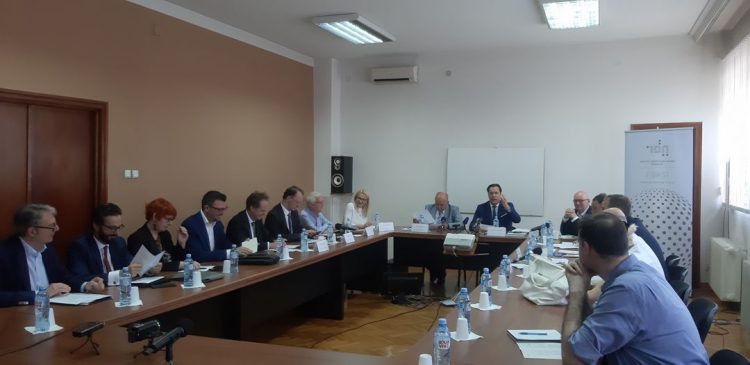The Strategic Trends 2019 conference, organized by the Forum for Strategic Studies (FORST) of the Institute of Social Sciences (IDN) and led by FORST President Dr. Neven Cvjetićanin, was held at the Institute of Social Sciences in Belgrade on Friday, June 14, 2019.
The conference addressed the European Parliament elections held from May 23 to 26, 2019, which were deemed crucial and pivotal for the future of the European Union. These elections attracted significant attention due to the specific geopolitical context in which they were held, marked by conflicts of interest among global powers (USA, China, Russia) and differing global ideological narratives (liberal vs. populist). These factors have reflected on processes within Europe and the European Union.
The conference was organized a few weeks after the EU elections when the results were already known, with the aim of discussing the potential for various European political groups to form a majority for the election of the European Commission, the leadership of the European Central Bank, and other European institutions. The goal of the conference was to explore these possibilities and provide forecasts on what potential post-election scenarios for forming European institutions would mean for the future of the European Union and Europe as a whole.
The conference featured prominent figures from European politics, including Hannes Swoboda (Austria), former President of the Progressive Alliance of Socialists and Democrats in the European Parliament, and Tilman Kuban (Germany), President of the Union of Young Christian Democrats (CDU), who is an emerging star in German and European politics. The conference also included Dr. Tanja Miščević, Head of the Serbian Negotiating Team for EU Accession, representatives of Serbia’s Ministry of Foreign Affairs (Dr. Duško Lopandić), diplomatic representatives, guests from foreign ministries in the region, respected scientists and analysts from the European Union and the region, as well as distinguished academic researchers focusing on international relations and global strategic trends.
The conference aimed to answer questions about future developments within the European Union after the elections and about future trends in relations between the European Union and the Western Balkans, as well as the future of Serbia’s EU accession process.
The conclusions of the conference and key parts of the guests’ presentations can be very useful for the Republic of Serbia in shaping future public policies in the areas of foreign policy, European integration, security, and the strategic direction of the Republic of Serbia in the coming years. These conclusions and key parts of the presentations are summarized below as an overview of the most important moments from the conference panels. They reflect the views of the guests and presenters that can be valuable for further analysis of trends within the EU and relations between the EU and Serbia, but not necessarily the views of the conference organizers.

